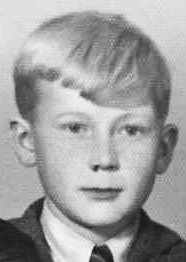It is better to be hungry and free than full of troughs and live in slavery

Stáhnout obrázek
Boris Hlaváček was born on May 24, 1933, in the family of a well-known resistance fighter, head teacher Karel Hlaváček. The witness spent his youth in the village of Veselá near Rovensko pod Troskami and was already a member of the scout organisation at the age of five. In the autumn of 1942, the father provided shelter to the members of the Antimony air force, but in January 1943 the hiding place was revealed and Karel Hlaváček was arrested. He survived the war and the family moved to Liberec. After graduating from general schools, the witness started studying at an art school. After the communist coup, the father was repeatedly arrested and imprisoned for 18 months. Due to personnel reasons, the witness could not study at the Academy of Fine Arts (AVU), which was his life‘s dream, and joined the school of art and aesthetic education at the time. After his studies, he had to join the Technical auxiliary battalions, where he dedicated himself to music and music competitions throughout the country as a bandleader. His uncle Bohumil Kobra was killed by a Soviet tank in the square in Liberec during the August events in 1968. During the normalisation period, he mostly worked as a buyer in various businesses and also in the botanical garden. He was married twice and has two sons. His hobbies are painting and gardening. At the time of filming the interview (2019), the witness lived in Čimice, Prague.








